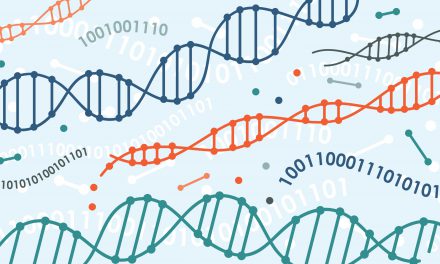
The Sleep Gene
More than a third of American adults do not get enough sleep on a regular basis, according to the CDC.1 Help may be on the way. Scientists have recently identified a “sleep gene” that allows people who have this gene to feel fully rested with just four to six hours of sleep, without the ill effects that are typically associated with lack of sufficient sleep.
To view the full article please register below:
The Sleep Gene
More than a third of American adults do not get enough sleep on a regular basis, according to the CDC.1 Help may be on the way.
Scientists have recently identified a “sleep gene” that allows people who have this gene to feel fully rested with just four to six hours of sleep, without the ill effects that are typically associated with lack of sufficient sleep. The importance of proper sleep is well documented, as sleep plays a vital role in good health and well-being.
The “Sleep Gene”
Until the discovery of a short-sleep gene by scientists at the University of California at San Francisco, sleep scientists hadn’t thought about sleep duration being regulated by a person’s genetic make-up.
The breakthrough happened once researchers identified a family that included three generations of short sleepers. Using a form of genome sequencing, they discovered a rare mutation in the ADRB1 gene, which is a gene that codes for a receptor known to regulate the sleep/wake cycle.
With this finding, the scientists went to work on lab-grown cells and mice, discovering the ADRB1 gene played a major role in the region of the brain involved in regulating sleep. They also found that the mutated version was more easily activated, translating into building brains that are easier to wake and stay awake longer.
Hope for the Sleep Deprived
The rare individuals who have this natural sleep gene mutation experience better sleep quality and sleep efficiency, allowing them to avoid the health consequences of chronic sleep deprivation, such as high blood pressure, diabetes, heart attack, heart failure and stroke.
This research is important because it has led to a better understanding of how sleep is regulated, opening the doors to new thinking on the development of drugs or therapies that will improve sleep for millions of Americans, as well as their overall health.
Should this new future of better sleep for all Americans occur, it may have profound implications for society that extend well beyond better health. The societal benefits of a more rested population enjoying a higher level of cognitive function throughout the day may result in more productive workers, fewer accidents, better moods that lead to kinder behavior and a deeper engagement in more activities. Until that time, check out these tips on combatting lack of sleep.
Who knows, we may even retire the phrase “Look who woke up on the wrong side of the bed today”!
Source:
Please reference disclosures: https://blog.americanportfolios.com/disclosures/












